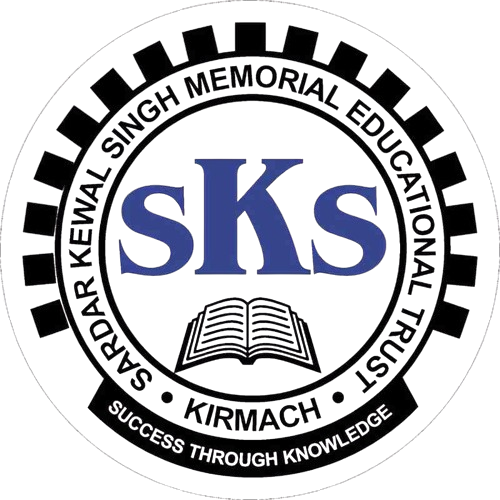Choosing the right career path after finishing 12th grade can feel overwhelming—especially if you realize engineering isn’t your passion.
With so many options available, it’s easy to get lost in the sea of choices. This article will guide you, step by step, through the various avenues you can pursue if engineering doesn’t excite you.
You’ll discover courses, career paths, skill-building opportunities, and practical tips to help you make a confident, informed decision.
By the end of this guide (What to Do After 12th if Not Interested in Engineering ), you won’t need to search any further—everything you need is right here.
Must Read: Career Options After 12th Without Maths for Girls In 2025
Understanding Your Interests and Strengths
Before diving into specific courses or careers, take a moment to reflect on:
- Your hobbies and passions: Do you enjoy writing, art, or helping people?
- Academic strengths: Are you more drawn to language, creativity, or numbers?
- Personality traits: Are you outgoing, analytical, or detail-oriented?
How to assess yourself:
- Self-Reflection Journaling: Note activities that energize you.
- Aptitude Tests: Online quizzes can reveal hidden strengths (e.g., logical, creative, interpersonal).
- Talking to Mentors: Teachers, counselors, or industry professionals can offer insights.
By understanding your core interests and strengths, you’ll narrow down the fields that align with your true self.
Exploring Arts and Humanities Streams
If you enjoy reading, writing, or understanding human behavior, the Arts and Humanities stream offers diverse career opportunities:
- Literature and Languages
- Bachelor of Arts (BA) in English, Hindi, or other regional/world languages
- Careers: Content writer, editor, translator, language teacher
- History and Political Science
- BA in History or Political Science
- Careers: Historian, archaeologist, civil services, diplomat, policy analyst
- Psychology
- BSc or BA in Psychology
- Careers: Counselor, human resources, clinical psychologist (with further study)
- Sociology and Anthropology
- BA in Sociology/Anthropology
- Careers: Social researcher, NGO worker, community development
- Fine Arts and Performing Arts
- Bachelor of Fine Arts (BFA), BA in Dance/Music/Theatre
- Careers: Artist, performer, art therapist, designer
Key benefits:
- Develops critical thinking, communication, and cultural awareness.
- Wide range of postgraduate specializations (e.g., Mass Communication, Gender Studies).
Commerce and Business-Oriented Courses
Commerce offers a blend of business, finance, and economics. If you’re good with numbers but not keen on heavy technical engineering subjects, Commerce could be your zone.
- Bachelor of Commerce (B.Com)
- Specializations: Accounting, Taxation, Finance, Banking
- Careers: Accountant, auditor, financial analyst, banker
- BBA (Bachelor of Business Administration)
- Focuses on management, marketing, HR, operations
- Careers: Marketing executive, HR manager, business analyst
- BA in Economics
- Emphasizes economic theory, data analysis, policy
- Careers: Economist, policy analyst, investment banking
- Hotel Management
- BHM (Bachelor of Hotel Management)
- Careers: Hotel manager, event planner, food and beverage manager
- Travel and Tourism Management
- BTour (Bachelor of Tourism)
- Careers: Travel consultant, tour operator, hospitality coordinator
Why Commerce?
- Strong demand for business and finance professionals.
- Clear career progression with certifications like CA, CMA, CFA, CFP.
Pure Science Without Engineering
If you loved science subjects but engineering wasn’t your thing, consider:
- BSc in Physics, Chemistry, Botany, Zoology
- Careers: Research scientist, lab technician, teaching
- BSc in Biotechnology or Microbiology
- Emerging fields in healthcare, agriculture, pharmaceuticals
- Environmental Science
- Careers: Environmental consultant, conservationist, policy planner
- BSc in Mathematics or Statistics
- Roles: Data analyst, actuary, quantitative researcher
- BSc in Geography and GIS
- Careers: GIS specialist, urban planner, cartographer
Advantages:
- Direct entry into research labs, government institutes, or teaching.
- Strong foundation for MSc and PhD programs.
Vocational and Skill-Based Courses
Short-term, skill-focused courses can make you job-ready in months rather than years:
- Diploma in Digital Marketing
- SEO, SEM, social media strategy, email marketing
- Graphic Design and Multimedia
- Adobe Suite, UX/UI fundamentals, animation
- Web Development (Full-Stack vs. Front-End)
- HTML, CSS, JavaScript, frameworks (React, Angular)
- Culinary Arts and Bakery
- Professional cooking, patisserie, kitchen management
- Jewellery Design and Technology
- Automotive and Electric Vehicle Technician
- Healthcare Assistants and Paramedics
Why choose vocational courses?
- Industry-aligned curriculum.
- Internships and hands-on projects build real-world skills.
- Lower cost and faster completion—ideal if you want to start earning quickly.
Professional and Certification Courses
Gaining industry-recognized certifications can boost your employability:
| Field | Certification | Duration |
|---|---|---|
| Information Technology | CompTIA A+, CCNA, AWS Certified Cloud Practitioner | 3–6 months |
| Finance | Chartered Accountant (CA), CMA, CFA, FRM | 6 months–3 yr |
| Management | PMP (Project Management Professional), PRINCE2 | 3–6 months |
| Languages | TEFL, CELTA (for teaching English abroad) | 1–3 months |
| Design | Autodesk Certified Professional, Adobe Certified Expert | 1–4 months |
Tip: Many of these certifications require you to clear entrance or fund your study, so plan early.
Preparing for Government and Bank Exams
If you prefer stable, respected jobs in the public sector, consider:
- Civil Services (UPSC/State PSC)
- Roles: IAS, IPS, IFS, administrative services
- Banking Exams (IBPS PO/Clerk, SBI PO/Clerk, RBI Grade B)
- Staff Selection Commission (SSC CGL, CHSL)
- Railway Recruitment Board (RRB) Exams
- Defence Services
- NDA, CDS, AFCAT, state police constable
Preparation Tips:
- Join a reputed coaching centre or online platform.
- Solve previous years’ papers and mock tests regularly.
- Build a study timetable and stick to it.
Creative Fields: Design, Media, and Entertainment
If you have a creative flair, explore:
- Fashion Design (B.Des/FDDI)
- Interior Design (B.Des)
- Animation and Visual Effects
- Journalism and Mass Communication
- Radio jockey, TV presenter, reporter, digital journalist
- Photography and Filmmaking
- Performing Arts (Dance, Music, Theatre)
Getting Started:
- Build a strong portfolio or showreel.
- Attend workshops, online masterclasses, and industry events.
- Network with professionals and seek internships.
Entrepreneurship and Startups
If you dream of being your own boss:
- Identify a problem: Talk to people, observe market gaps.
- Build a minimal viable product (MVP): A simple prototype or service.
- Learn basics of marketing, finance, and operations.
- Seek mentorship: Incubators, startup accelerators, government schemes (Startup India).
- Prepare a business plan: Cover vision, target market, revenue model, funding needs.
Advantages:
- Autonomy in decision-making.
- Potential for high growth and financial rewards.
- Real-world learning across all business functions.
Studying Abroad
If you’re open to international education:
- Countries to consider: USA, UK, Canada, Australia, Germany, Singapore
- Popular courses: Liberal Arts, Business, Hospitality, Design, Language Studies
- Entrance tests: IELTS/TOEFL, SAT/ACT, GRE/GMAT
- Scholarships and Funding: Look for country-specific scholarships (e.g., Fulbright, Commonwealth).
Application Checklist:
- Academic transcripts and certificates
- Standardized test scores
- Statement of Purpose (SOP) and Letters of Recommendation (LOR)
- Proof of financial resources
Tips for Choosing the Right Path
- Research thoroughly: Read course curricula, speak to alumni, visit college websites.
- Consider future scope: Look at industry growth projections and job market trends.
- Balance passion and pragmatism: While following your heart is vital, ensure there’s viable demand.
- Internships and Workshops: Get hands-on experience before committing to a multi-year program.
- Budget and Location: Factor in course fees, living costs, and proximity to home.
Admission Process and Entrance Exams
- National Level Exams: JEE Main/Advanced (for non-engineering branches like architecture), CLAT (law), NID DAT (design), NIFT, CUET (for various UG programs).
- State Level Exams: MH CET, UPSEE, MHT CET, and others.
- College-Specific: Some institutions conduct their own entrance tests and interviews.
General Steps:
- Registration: Create an account on the exam portal.
- Application Form: Fill details, upload documents, pay fees.
- Admit Card: Download when released.
- Preparation: Follow exam syllabus, solve mock papers.
- Results and Counselling: Choose colleges and courses based on rank/score.
SKS Group of Colleges
When considering quality education with a student-centric approach, SKS Group of Colleges near NIT, Kirmach Road, Kurukshetra, stands out.
With well-equipped labs, experienced faculty, and a focus on holistic development, SKS offers programs in pharmacy, education, commerce, and more.
Their strong industry linkages, regular workshops, and placement support ensure students not only learn theory but also build practical skills for real-world success.
Building a Skill Portfolio
Irrespective of the course you choose, developing complementary skills is crucial:
- Soft Skills: Communication, teamwork, leadership, critical thinking.
- Digital Literacy: Basic coding, Microsoft Office, Google Workspace.
- Language Proficiency: English fluency opens global opportunities.
- Project Work: Showcase college or personal projects on GitHub or portfolios.
- Certifications: Short courses on platforms like Coursera, Udemy, or edX.
Leveraging Online Resources and MOOCs
Massive Open Online Courses (MOOCs) offer flexibility and depth:
- Coursera and edX: Partner with top universities for verified certificates.
- Udemy and Skillshare: Affordable courses on niche topics.
- Khan Academy: Free tutorials on fundamental subjects.
- YouTube Channels: Industry experts sharing tutorials and career advice.
Overcoming Decision Paralysis
Making a final decision can be tough. Here’s how to break the deadlock:
- Pros and Cons List: For each option, list advantages and challenges.
- Short-Term Trials: Attend trial classes or webinars.
- Mentorship Calls: Talk to recent graduates in your fields of interest.
- Family and Peer Input: Seek honest feedback but align it with your goals.
- Set a Deadline: Give yourself a timeline to decide, preventing endless procrastination.
Must Read: Career Options After 12th Commerce | SKS Group of Colleges
Conclusion
Not wanting to pursue engineering after 12th doesn’t limit your future—it broadens it. From humanities and commerce to vocational courses, certifications, creative arts, and entrepreneurship, countless pathways await.
By understanding your strengths, researching thoroughly, and planning with clarity, you’ll find a career that not only suits your interests but also promises growth and fulfillment.
Remember, the first step is self-awareness—everything else follows naturally when you build on your true passions. Start exploring today, and chart a course toward a rewarding tomorrow!

